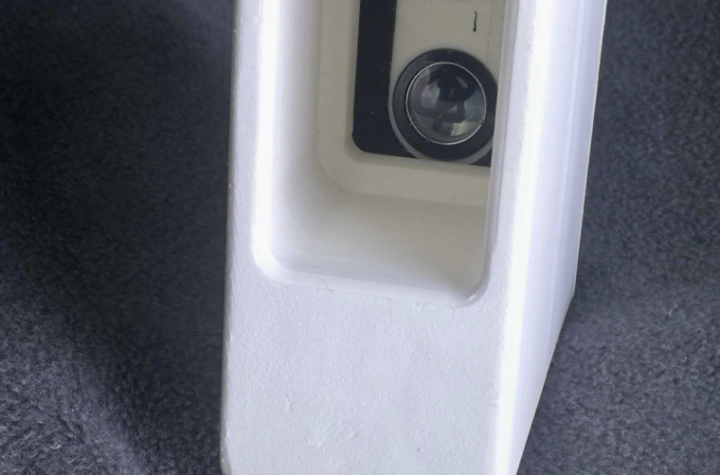
There has been growing speculation that Apple is racing to launch an electric car after the company poached talent and is to be holding eight patents related to automotive batteries. But according to a patent analysis by the Intellectual Property and Science Business division of Thomson Reuters, it’s actually Samsung that could have the IP cornered on a smarter, cleaner automobile.
Apple, which a year and a half ago applied for eight patents related to automotive batteries, recently hired a bevy of engineers just one of whom had already filed for 17 patents in his former career, according to Thomson Reuters. The recent spate of hires and patent filings reviewed by Reuters shows that Apple is fast building its industrial lithium-ion battery capabilities, adding to evidence the iPhone maker may be developing a car. Apple has filed far fewer of these patents than rivals, perhaps adding impetus to its recent hiring binge as it seeks to get up to speed in battery technologies and other car-building related expertise.
As of 18 months ago, says Thomson Reuters, Apple had filed for eight such patents . By contrast, Samsung, which has been providing electric vehicle batteries for some years, had close to 900 filings involving auto battery technology alone. According to Thomson Reuters, the US government makes patent applications public only after 18 months, so the figures do not reflect any patents filed in 2014. The number of auto-related patents filed by Apple, Google Inc, Korea’s Samsung, electric carmaker Tesla Motors Inc and ride-sharing startup Uber tripled from 2011 to 2014, according to an analysis by Thomson Reuters IP & Science of public patent filings.
According to an analysis done by Thomson Reuters, Samsung has the largest and broadest collection of patents in the automotive field including a large number in batteries and fuel cells for next-gen vehicles. The Thomson Reuters’ study – based on 4,761 automotive related inventions assigned to Apple, Google, Samsung, Tesla, and Uber published between 1990 and 2014, shows that it’s actually Samsung who is responsible for a initial surge in interest in the area in the late 90’s. Samsung also renewed their interest in the field before the other companies began ramping up.
The study shows that Samsung’s automotive innovations are mainly in the area of batteries and fuel cells, then devices, automotive accessories, driver assistance systems, navigation systems, electronic communications, propulsion, safety and security, entertainment, handling, electronics and e-commerce. The fastest growing areas of Samsung’s innovations are in devices and propulsion.
This makes Samsung’s automotive innovations broadest in terms of scope and reach. Google also has a large number of inventions, but their portfolio is skewed towards communications, device integration, and autonomous driving/drivers assistance than Samsung’s, says Thomson Reuters. The growing interest in autonomous driving has grown exponentially for Google as has interest in device integration and navigation while electronic communications has been sporadic.
The company says that rumors of a potential purchase of Tesla by Apple would make sense from a patenting perspective since the companies have almost no overlap between portfolios. Apple is focused on iOS integration with CarPlay, while Tesla brings basic automotive requirements. A merged Apple/Tesla would allow the combined company to compete on a much more level patent related playing field with Google.
Tesla has always maintained an interest in batteries but recently the company has been filing more frequently on other aspects of the propulsion systems, device integration and other aspects of the automobile. According to the Thomson Reuters study, a merged Apple and Tesla would allow the combined company to compete on a level patent related field with Google. If Apple were serious about automotive, the study argues, Tesla would make a good partner.
Uber, which is primarily concerned with commerce ramifications, has not yet started patenting in the field of autonomous driving. It recently started filing patents but Uber’s interest is clearly in e-commerce. The Thomson Reuters study points out that compared to Samsung, Uber only has 12 inventions to its credit.
“So far, sales of pure electric cars in the US and globally are still a tiny slice of a market dominated by internal combustion vehicles. However, Apple and other companies looking to develop electric cars could see opportunity in government mandates and incentives designed to boost sales of vehicles that do not emit carbon dioxide,” says Thomson Reuters.
Automotive Industries spoke to Anthony Trippe, patent analyst for Thomson Reuters
AI: How did Samsung steal a march over others in terms of technology patents for electric vehicles?
In a recent Thomson Reuter’s report, The State of Innovation in the Automotive Industry, we emphasized the point made by the Center for Automotive Research that “The industry is transitioning from a primarily mechanical-based industry to a software-based industry. In fact, some would argue that the industry is transitioning from a transportation focus to a technology focus.”
The analysis we conducted on the industry as a whole certainly supported the fact that technology, and software related enhancements are providing many of the features seen in recently developed automobiles. In particular we also pointed out that some of the hottest topics in the automotive field, mainly heads-up displays, telematics and, autonomous and assisted driving are based primarily on software, and technology-based inventions. It should come as no surprise that traditional technology companies such as Samsung, are finding a potential vertical in this industry, and that established players are becoming more software, and technology focused.
AI: How will this impact Samsung’s role in the EV market in the future?
The sheer size, and diversity of the automotive related inventions attributed to Samsung are much larger than other technology companies. This is in keeping with the general philosophy of Samsung to produce products in a higher number of verticals than their competitors. This is also reflected in the amount they spend on research and development, which is also much higher than some of their competitors. Samsung spent $13.4 billion in R&D in 2014, the second highest in the world, compared to Google at $8 billion and Apple at $2 billion. It is worth pointing out though that the comparison we made was just between Apple, Samsung, Google, and Uber. When you compare Samsung to Toyota, for instance, the results are much different, and Samsung does not look quite so dominant. Samsung has a surprisingly strong automotive portfolio, and could clearly make a significant contribution to many parts of the automotive ecosystem if they chose to.
AI: How important are the findings of your study for other players in the electric car market? Do you think many of the larger players – ie Tesla, Apple, Google etc have been guilty of complacency?
Disruptive technologies can come from many different directions, and often come from alternative fields of use. This would certainly be a lesson that the automotive industry could take from, the fact that Samsung has accumulated such a large portfolio in a vertical market such as batteries, and fuel cells. The automotive industry in general would do well to monitor core, and emerging technologies that may impact their field moving forward.
As for complacency on the part of Tesla, Apple, and Google, it’s possible that Tesla should be considering fuel cells, for instance, so they are prepared if that technology wins the day over batteries, and electric charging stations, especially with regards to what infrastructure gets implemented in which countries.
Both Apple, and Google were relatively late identifying the importance of strong, diverse patent portfolios. In some ways they have sought to catch up recently, and both file far more patents than they used to, but less than Samsung. They both also have a much smaller number of products, and R&D budget compared to Samsung. As such they probably haven’t been complacent since they are likely not trying to compete in as many areas. However in the areas they are focusing on, Apple and Google will need to continue their due diligence of identifying, and protecting their competitive advantages.
AI: Do the findings of the Thomson Reuters study reinforce the growing belief that the US needs to move fast to retain its leadership position in the alternative energy fuelled / driverless vehicles eco-space?
This question was addressed in a recent Thomson Reuter’s report, The State of Innovation in the Automotive Industry. The automotive report reveals that Korean, Japanese, and European companies are aggressively pursuing technology, and software advances across the entire industry. American companies have also made advances, however it could be beneficial if Detroit, and Silicon Valley spent more time working together, especially on the areas that really look to provide key features for the consumer 5-10 years from now.
AI: Your study indicates that a Tesla-Apple partnership would be beneficial to both – elaborate.
For a variety of reasons Apple could have a difficult time producing an automobile on their own. Besides being outgunned from an automotive patent perspective, the company does not have the infrastructure to produce automobiles. If Apple were to decide to enter this market they would be better off partnering with a like-minded company that brings different expertise to the table than they do. From a patenting perspective there is almost no overlap between the Tesla, and Apple automotive portfolios therefore a partnership would likely be mutually beneficial. Assuming that is, that Apple is actually interested in doing more than enhancing their CarPlay functionality, and the features in their Maps software.
AI: How do you see a company like Uber impacting the EV and driverless car market?
Personally I don’t foresee Uber impacting the electric vehicle and driverless car market. To date they don’t have any patents in this area, and they don’t appear to have the infrastructure, or experience for developing advanced capabilities like autonomous driving.
AI: What is your opinion of the future of Google’s autonomous drive car project – what kind of partnerships do you think would help the company?
Google will likely play a role but when we analyzed the patents associated with autonomous driving in The State of Innovation in the Automotive Industry report (referenced in the first question) we found that several of the established automotive players, and GM in particular actually had a larger patent portfolio in this area than Google. If Google stays true to form keep your eyes open for the integration of the technology needed to deliver an autonomous car to be applied to a vertical that Google can more readily dominate











More Stories
Click Shield from MIKROE simplifies integration of Arduino Portenta with over 1600 Click boards
Optimizing Mid-Power Silicon MOSFETs for Automotive Applications
Paolo Pininfarina named the 2024 Laureate of The American Prize for Design